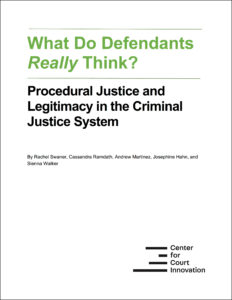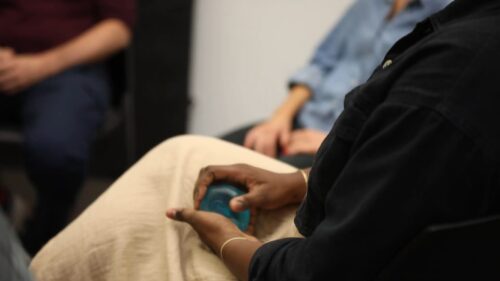-
Andrew Martinez

Andrew Martinez
-
Cassandra Ramdath
-

Josephine Hahn
-

Rachel Swaner
-
Sienna Walker
How do people involved in the criminal justice system think about fairness and legitimacy when dealing with police, courts, jail, and prisons?
Research suggests that people are more likely to perceive the justice system as fair when they feel they are treated with respect, understand the process, have opportunities to be heard, and that decision-makers are unbiased. Collectively, these factors underpin the idea of procedural justice.
This in-depth study highlights the voices of justice-system involved individuals in Newark, N.J. and Cleveland, Ohio, using personal narratives to describe experiences with procedural justice. Findings suggest that, on the whole, the individuals surveyed do not view the system as legitimate or fair, and that those opinions are largely shaped by their individual interactions with justice-system actors such as police officers, judges, lawyers, and correctional officers, as well as by broader perceived factors such as institutional racism, the over-policing of minor crimes, a court and penal system excessively focused on punishment, and a lack of accountability of all criminal justice agents.


